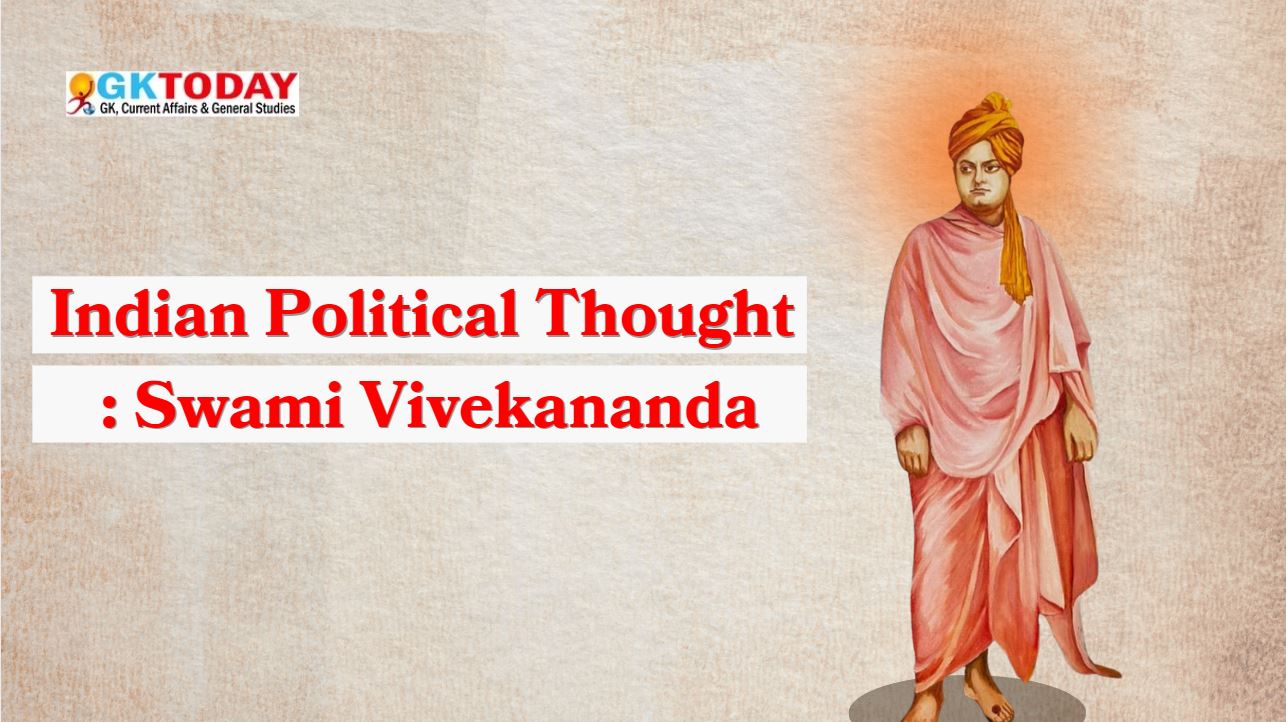Indian Political Thought – Swami Vivekananda
Swami Vivekananda was a prominent Indian philosopher, spiritual leader, and reformer. His teachings have had a deep impact on Indian society and beyond. Born on January 12, 1863, in Kolkata, he was originally named Narendranath Datta. His life was marked by a quest for knowledge and a deep understanding of both Western philosophy and Indian spirituality. He passed away on January 19, 1902, leaving behind a rich legacy of thought and action.
Biographical Overview
Swami Vivekananda’s early life was characterised by a thirst for knowledge. He studied at Presidency College in Kolkata, where he was influenced by various philosophical ideas. His quest for truth led him to explore the teachings of Sri Ramakrishna, which shaped his spiritual outlook.
Philosophical Contributions
Swami Vivekananda’s philosophy is rooted in Vedanta. He advocated for its practical application in daily life. His vision of universalism sought to create a religion that transcended sectarian divides, promoting harmony among different faiths. He believed in the synthesis of spirituality and science, arguing that both could coexist and enrich human understanding.
Key Concepts
- Self-Realization: Vivekananda stressed the importance of understanding one’s true self as essential for spiritual enlightenment.
- Service to Humanity: He viewed social service as a divine act, integral to spiritual growth.
- Strength and Character: He believed that personal and national development hinged on strong character and willpower.
Major Works
Swami Vivekananda’s literary contributions are numerous:
- “Raja Yoga”: A comprehensive guide on the philosophy and practice of yoga.
- “Jnana Yoga”: Explores the path of knowledge and wisdom.
- “Karma Yoga”: Emphasises the significance of selfless action in daily life.
- Speeches at the Parliament of Religions (1893): Introduced Hindu philosophy to a global audience.
Social and Political Views
Vivekananda’s views on society and politics were progressive:
- Nationalism: He championed Indian nationalism and self-reliance.
- Empowerment of Women: He advocated for women’s education and empowerment as crucial for societal progress.
- Critique of British Rule: He was critical of colonialism and called for social reforms in India.
Influence and Legacy
Swami Vivekananda founded the Ramakrishna Mission in 1897, focusing on social service and spiritual education. His teachings inspired global movements for social reform and spiritual awakening. He played important role in reviving Hindu culture and spirituality in India.
Philosophical Schools and Movements
Swami Vivekanandly contributed to the development of Neo-Vedanta. This modern interpretation of Vedanta adapts ancient teachings to contemporary contexts. He also promoted interfaith dialogue, encouraging understanding among various religions and cultures.
Key Quotes
Swami Vivekananda’s words continue to inspire:
- “Arise, awake, and stop not until the goal is reached.”
- “The greatest sin is to think yourself weak.”
Recognition
In India, National Youth Day is celebrated on January 12 to honour Swami Vivekananda’s contributions to youth empowerment. His teachings influenced prominent leaders, including Mahatma Gandhi, in the Indian independence movement.
Philosophical Methodology
Swami Vivekananda emphasised pragmatism in spirituality. He believed in applying spiritual principles in everyday life. His focus on experiential knowledge brought into light the importance of personal experience over mere intellectual understanding.


